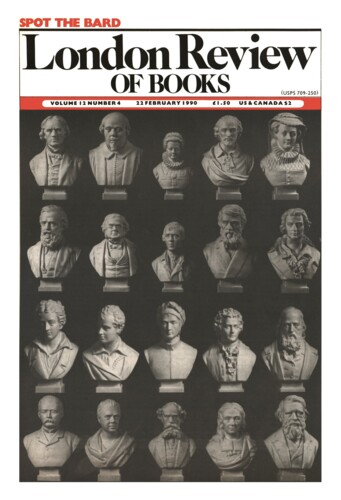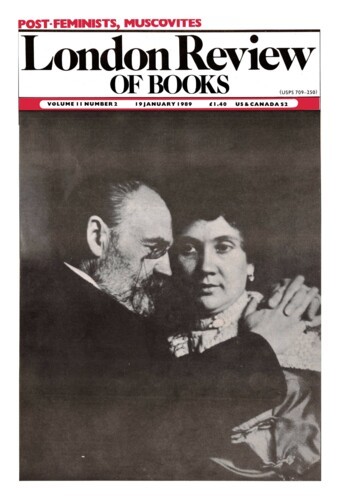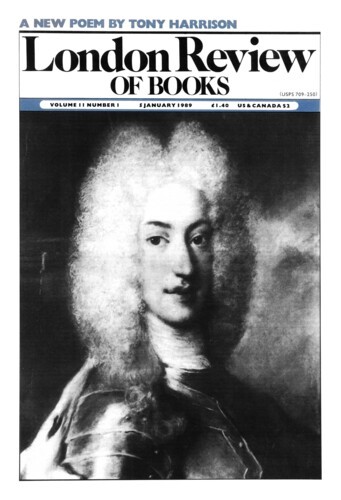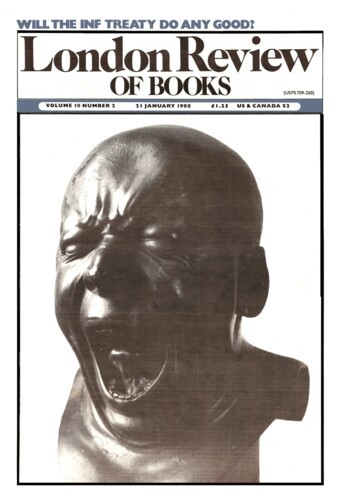Galen Strawson
Galen Strawson’s Things That Bother Me will be published this month.
What’s so good about Reid?
Galen Strawson, 22 February 1990
According to the ‘analytic’ tradition, modern philosophy begins with Descartes (b. 1596), Spinoza (b. 1632), Locke (b. 1632), Leibniz (b. 1646), Berkeley (b. 1685), Hume (b. 1711) and Kant (b. 1724). This is the canonical list of great philosophers, and it is not very likely to change. But there are two others whose claims for inclusion are regularly pressed: Nicholas Malebranche (b. 1638), to be inserted between Leibniz and Locke; and Thomas Reid (1710-96), best inserted between Hume and Kant rather than between Berkeley and Hume, on the grounds that his major works are a response to Hume, who was his junior by exactly one year.
Why do we need it and why is it impossible?
19 January 1989
Why do we need it and why is it impossible?
5 January 1989
Idris the Ingénu
Galen Strawson, 21 January 1988
According to the traditions of the Prophet reported by Al Bukhari, Muhammad once declared that those who would be most severely punished on the Day of Judgement were the ‘portrayers’ (al musawwirun), the painters or sculptors. No doubt he was principally concerned to condemn the evil of idolatry, like Moses before him and many after him. But Islamic religious art has ever since avoided all representation of living creatures, and above all of people. Fashioning the human form is strictly God’s business, and popular belief in the power and maleficence of images has remained strong in many Islamic cultures.
Pieces about Galen Strawson in the LRB
The I in Me
Thomas Nagel, 5 November 2009
If, as most of us assume, we pass part of each night in dreamless sleep, what is it, apart from the human being, that loses consciousness late at night and regains it in the morning? How can there be a...
Headaches have themselves
Jerry Fodor, 24 May 2007
Consciousness is all the rage just now. It boasts new journals of its very own, from which learned articles overflow. Neuropsychologists snap its picture (in colour) with fMRI machines, and probe...
What-it’s-like-ness
Hilary Putnam, 8 February 1996
Every so often one encounters a book with which one disagrees, wholly or in large part, but which one regards as a genuine contribution to philosophy precisely because it sets out views with...
Reputation
Colin McGinn, 23 November 1989
Philosophical reputations come and go – they surge and gutter – according largely to the prevailing intellectual climate, and are only tenuously tied to the actual merits of the views...
Is that you, James?
Thomas Nagel, 1 October 1987
Your nervous system is as complex a physical object as there is in the universe, so far as we know: 12 billion cells, each of them a complex structure with up to sixty thousand synaptic points of...
Read anywhere with the London Review of Books app, available now from the App Store for Apple devices, Google Play for Android devices and Amazon for your Kindle Fire.
Sign up to our newsletter
For highlights from the latest issue, our archive and the blog, as well as news, events and exclusive promotions.




